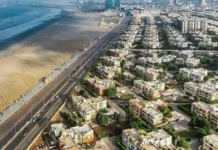Staff Report
KARACHI: The former Advisor to the Sindh and Balochistan Chief Ministers on Planning and Development and Finance Dr Kiser Bengali has underlined the need to create integrated urban governance for this he recommended to bring an amendment in the Constitution by inserting a chapter on Local Government system to make it functional.
Addressing an online seminar on “Addressing urban chaos: Case for Integrated Governance” organized by Pakistan Institute of Labour Education and Research (PILER) on Monday, Dr Bengali said presently only chapters on the federal and the provincial governments are included in the Constitution, which both outline the structure, powers and functions of the two levels of governments. However, Local Government is mentioned more as a footnote, he added.
According to him, currently the local government system is has become a football between and within military and civilian governments for control of power and patronage. “A chapter in the Constitution, outlining the structure, powers and functions of local government is a workable solution,” he remarked.
For Sindh, Dr Bengali recommended to make at least four Cities Metropolitan Authorities with an integrated management system and be autonomous with regard to intra-city affairs. Besides one for Karachi, the other three Cities Metropolitan Authorities can be Hyderabad, Shaheed Benazirabad and Sukkur.
Hyderabad Metropolitan Authority may be comprised of Hyderabad, Kotri, Jamshoro, Tando Jam, Tando Allahyar, Tando Muhammad Khan, Badin, Thatta, and Mirpurkhas; Shaheed Benazirabad Metropolitan Authority may serve Nawabshah, Dadu, Naushero Feroze, Sanghar, Sehwan, and Shahdadpur and Sukkur Metropolitan Authority main contain Sukkur, Rohri, Khairpur, Shikarpur, Ghotki, Kandhkot, Jacobabad, Shahdadkot, and Larkana areas.
Dr Bengali said Karachi suffers from divided political ownership as on one hand the city is the capital of Sindh but there is a politico-ethnic divide which has hampered its development. The Pakistan Peoples Party (PPP ) is the dominant political power in Sindh, but it has a small vote bank in Karachi, therefore, the PPP which is in control of the provincial government can not have the political incentive to devolve power in Karachi thus lose control. Resultantly, the rest of urban Sindh also suffers, he added.
He expressed regrets that people of Karachi suffered a lot during the recent rains. All Sindh cities and towns, including Karachi, are in a sorry state of physical infrastructure and provision of civic services are in a state of collapse, he remarked.
At least half the urban population in Sindh do not have daily water supply and that too is polluted! In many areas drinking water co-exists with sewage and garbage in their neighbourhoods. There is a sorry state of transport in urban centres and people have to commute in public transport buses which are in bad conditions.
“Half of Karachi presents an 11th-century look!, but Larkana is the prime embarrassment as its neighbourhood Mohen-jo-Daro was managing its water and sewerage much better 5,000 years ago”, he pointed out. At least five services which are daily used by the citizens are in the worst condition in urban areas of Sindh, Dr Bengali said adding that these included water supply, wastewater disposal, solid waste management, electricity and public transport.
The reason for broken civic services is the fragmentation of services delivery organizations, constitutional deficiency and political divide which are leading to lack of investment, lack of planning and lack of managerial attention.
“Adding to the chaos are Cantonments and DHAs in Karachi, which are supra-federal Institutions that are a law unto themselves,” he said adding that the cantonments can sanction high rise constructions without reference to water supply and wastewater disposal, local electricity supply and traffic generation.
The Defence Housing Authority (DHA) violates basic rules of urban planning, even it has ignored natural laws of gravity flows. The land reclamation has distorted the natural Malir river’s flows and the Arabian Sea currents.
Talking about his integrated governance model, Dr Bengali suggested creating two parallel tracks which may be called Civil Administration (CA) – responsible to the provincial government (administering through Commissioners, Deputy Commissioners, etc.) and Local Administration (LA) – responsible to elected Councils.
He said the CA should control Revenue (Land Management), Law and Order, Disaster Management and Regional Planning and Development. The Local Administration may be responsible for urban spatial planning, building control, housing, water supply & wastewater disposal, household electricity & gas supply, urban roads, pavements & streetlights, solid waste disposal, Public transportation, traffic management, control & policing, health facilities, schools & colleges, vocation & technical institutions, libraries, industrial estates, commercial plazas, parks & playgrounds, mosques, graveyards etc.
For the first 5 years, the Mayors and all departmental heads may be appointed by the provincial government and after the incubation period the Mayors may be elected and elections are held.
PILER Executive Director Karamat Ali in his welcome remarks welcomed the allocation of Rs. 111 packages for Karachi and underlined the need for a public supervision mechanism to implement the package.
Ms. Sadiqa Salahuddin of Indus Resource Centre, Ms. Farhat Perveen of NOW Communities, Jamil Junejo of Oxfam GB, Ghulam Mustafa Mirani of Pakistan Fisherfolk Forum, Mir Zulfiqar Ali of WERO, Zulfiqar Shah and Shujauddin Qureshi of PILER also spoke on the occasion.








